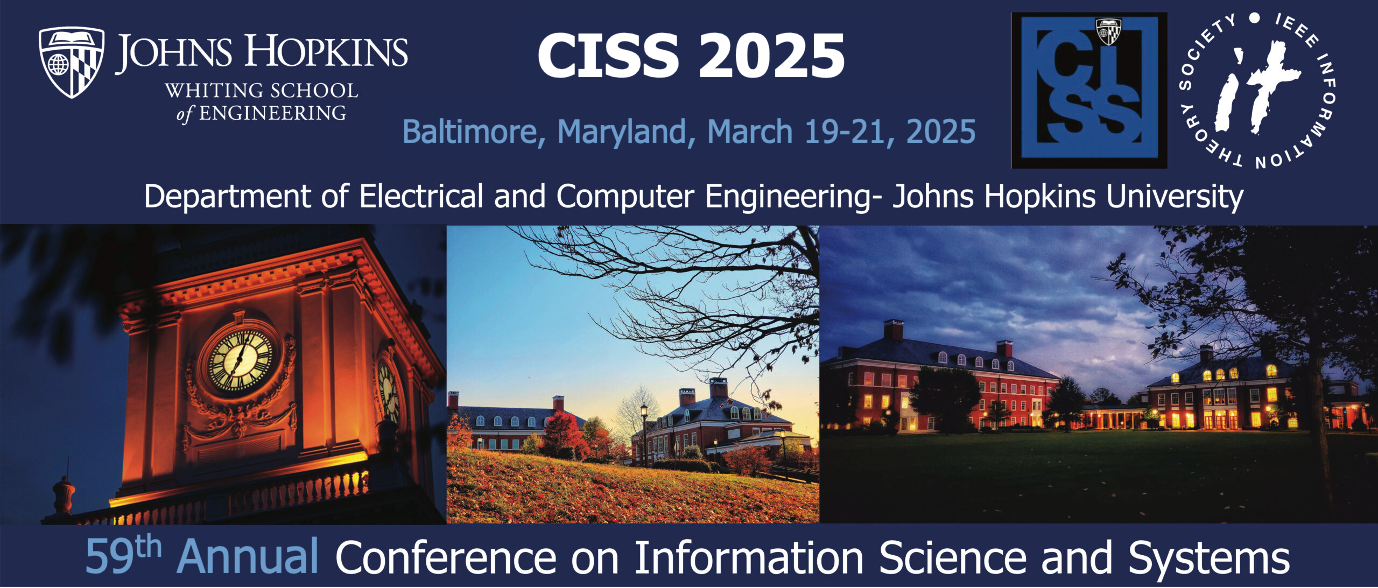Estimation & Learning in Stochastic Systems I – Invited Special Session
C2L-E: Estimation & Learning in Stochastic Systems I - Invited Special Session
Session Type: LectureSession Code: C2L-E
Location: Room 5
Date & Time: Friday March 24, 2023 (10:00-11:00)
Chair: James Spall
Track: 12
| Paper ID | Paper Title | Authors | Abstract |
|---|---|---|---|
| 3187 | Tunable Complexity Benchmarks for Evaluating Physics-Informed Neural Networks on Coupled Ordinary Differential Equations | Alexander New, Benjamin Eng, Andrea Timm, Andrew Gearhart | In this work, we assess the ability of physics-informed neural networks (PINNs) to solve increasingly-complex coupled ordinary differential equations (ODEs). We focus on a pair of benchmarks: discretized partial differential equations and harmonic oscillators, each of which has a tunable parameter that controls its complexity. Even by varying network architecture and applying a state-of-the-art training method that accounts for “difficult” training regions, we show that PINNs eventually fail to produce correct solutions to these benchmarks as their complexity—the number of equations and the size of time domain—increases. We identify several reasons why this may be the case, including insufficient network capacity, poor conditioning of the ODEs, and high local curvature, as measured by the Laplacian of the PINN loss. |
| 3069 | Slime Mold Algorithm-Based Performance Improvement of PD-Type Indirect Iterative Learning Fuzzy Control of Tower Crane Systems | Radu-Emil Precup{1}, Raul-Cristian Roman{1}, Elena-Lorena Hedrea{1}, Emil M. Petriu{2}, Claudia-Adina Bojan-Dragos{1}, Alexandra-Iulia Szedlak-Stinean{1} | This current paper proposes to improve the performance of three Single Input-Single Output (SΙSΟ) fuzzy control systems for cart, arm angular, and payload positions of tower crane systems using Proportional-Derivative (PD)-type indirect iterative learning rules at the higher hierarchical levels in each SISO control loop. The lower hierarchical levels in the three SISO control loops are built upon three low-cost Takagi-Sugeno Proportional-Integral (PI)-fuzzy controllers tuned by the initial application of Extended Symmetrical Optimum (ESO) method to the linear PI controllers and next the transfer of the results to the PI-fuzzy controllers in terms of the modal equivalence principle. Set-point filters are included at the lower hierarchical level in the context of the ESO method for overshoot reduction. The design approach is presented in a unified way for all three controllers. The gains of the ΡD-type learning rules are optimally computed in the iteration domain considering a metaheuristic Slime Mould Algorithm (SMA) in a transparent and simplified version, that settles the optimization problems with objective functions expressed as the sums of squared control errors multiplied by time. The enhanced performance is settled considering ten sets of iterations of SMA. |
| 3068 | Generalized Simultaneous Perturbation Stochastic Approximation with Reduced Estimator Bias | Shalabh Bhatnagar{1}, L.A. Prashanth{2} | We present in this paper a family of generalized simultaneous perturbation stochastic approximation (G-SPSA) estimators that estimate the gradient of the objective using noisy function measurements, but where the number of function measurements and the form of the gradient estimator is guided by the desired estimator bias. In particular, estimators with more function measurements are seen to result in lower bias. We provide an analysis of convergence of the generalized SPSA algorithm, and point to possible future directions. |
